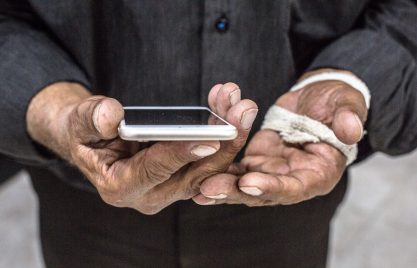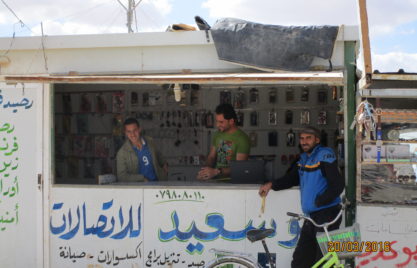Approaching non-classical customers requires non-classical approach, therefore, the DEF has recently introduced new electronic tools such as website updates, social media and electronic payment that facilitates debt servicing and improves collection.
The Development and Employment Fund (DEF) has taken the strategic decision to withdraw gradually from offering direct loans to micro businesses and focus on SME lending. The gradual withdrawal is useful, as it allows the DEF to capitalize on the decentralization approach now envisaged involving also the branches. The top management considers the DEF a principle tool of the Jordanian Government for creating jobs and reducing unemployment among the youth through self-employment and entrepreneurship, especially in the governorates outside the capital city Amman. It is therefore in the very interest of the new DEF management to ensure an effective as well as efficient outreach to its target groups. And in order to ensure the right positioning in the sector and to serve the interests and needs of the DEF as well as those of the target groups, the DEF must work on developing and implementing new and fashionable marketing tools.
The evolution of communication technology in the last decade has facilitated business’s ability to network with its existing and potential clients. Electronic marketing and especially the importance of website and social media, has made the microfinance institutions (MFIs) to have the opportunity to talk to millions of customers efficiently at relatively low costs. Website and social media channels help MFIs to communicate with their clients, and allow them to reach out to a larger group of customers in order to create awareness and promote their products and services.
The DEF targets particularly SME poor and vulnerable borrowers; accordingly, new products and services, especially for SME allow addressing the gap in the market. In its new direction, the DEF is aiming to target non-classical clients especially the entrepreneurial youth in the country. Approaching non-classical customers requires non-classical approach, therefore, the DEF has recently introduced new electronic tools such as website updates, social media and electronic payment that facilitates debt servicing and improves collection. The DEF, with the support of GIZ, is planning to use various forms of electronic communication to enhance outreach, customer service and improve the presentation of SME products and services. The DEF is looking for the social networking as a vital communication tool that can utilize in its efficient outreach.
The DEF, with the support of GIZ, will clearly expand the use of social media marketing in the next period as the awareness of the power of this communication tool has grown recently. However, the DEF must consider the risks and rewards of using these electronic marketing tools in their business operations, and ensure that these tools are aligned with policies, legislation and ethics, while at the same time meeting the needs of their clients. We at the GIZ has given a lot of attention and consideration to the social media affairs and defining the “red line” much better, to reduce grey areas. Because clients are the driving force for success in the microfinance sector, the key to attract, keep and protect them is through staff education. It is important that the DEF and other MFIs staff are appropriately trained before and during the use of any type of social media tool. Understanding how this new wave of communication affects the organization in the long-term can help MFIs to achieve future success with great outreach.
By Dr. Bashar Al-Zu’bi



